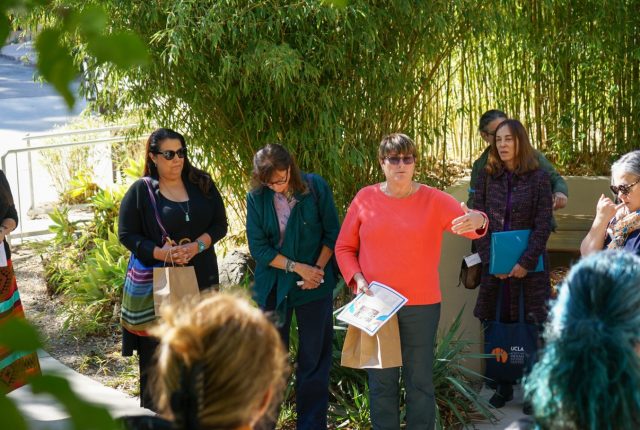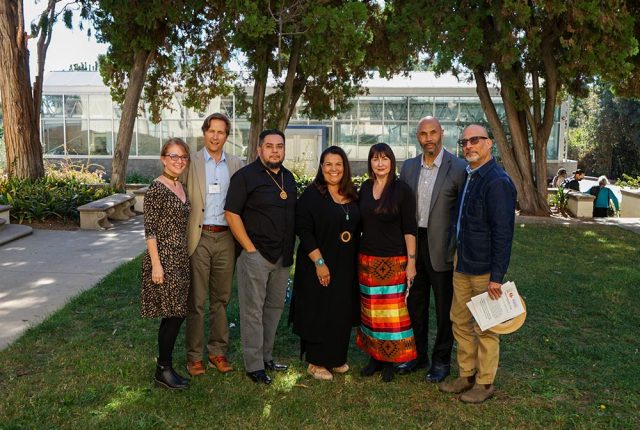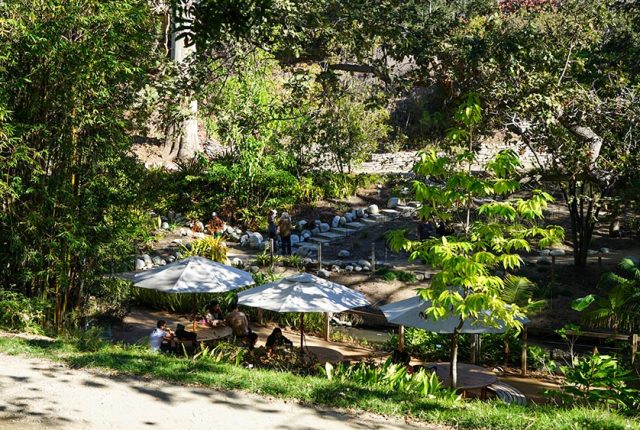
After many months of work behind the scenes from faculty, undergraduate and graduate students, and staff, on November 4th and 5th the first conference of the three-part series that constitutes the 2022–2023 Center for 17th– & 18th-Century Studies core program was held at the William Andrews Clark Memorial Library and the Mildred. E. Mathias Botanical Garden. Titled “The Forgotten Canopy: Ecology, Ephemeral Architecture, and Imperialism in the Caribbean, South American, and Transatlantic Worlds,” the core program was borne out of a conversation between current Clark Professors Dr. Stella Nair (Department of Art History, University of California, Los Angeles) and Dr. Paul Niell (Department of Art History, Florida State University) about the vibrant and diverse ephemeral architectural practices in the Americas and across the Atlantic. This event was made possible with support from UCLA’s Center for 17th- & 18th-Century Studies, UCLA’s American Indian Studies Center, UCLA’s Latin American Institute, and the Terra Foundation for American Art. The theme of this first conference was ‘ecology,’ gathering scholars around conversations on the ways that ephemeral architecture is created from natural resources and is necessarily intertwined with processes of ecological change.
The first day and a half of the conference centered around a series of thought-provoking talks by an international group of art and architectural historians, archaeologists, ethnobotanists, and Indigenous scholars. These scholars examined the environmental settings, as well as botanical knowledge and skills that facilitated the development of an ecology-based built environment, in places like Dominica, St. Croix, Colombia, and the Amazon, among other locales. These lectures were then followed on the afternoon of a second day by a hands-on-interactive workshop organized in collaboration with Dr. Shannon Speed, Director of the American Indian Studies Center. The independent and guided tours of UCLA’s Botanical Garden and campus carried out during the workshop expanded the intellectual discussions held during the conference–moving presenters, organizers, and the audience outside of the traditional conference space and into close proximity with the kind of flora that had been previously discussed. President of the Gabrielino-Tongva Springs Foundation Bob Ramirez spoke on ecological restoration of the Kuruvungna Village Springs site, offering a glimpse into a restored Tongva site just a few miles away from the university campus. The workshop was closed by a moving performance by William Madrigal and the Cahuilla Bird Singers.
This two-day event was both inspiring and energizing, proposing ways forward for the study of short-lived architecture within the circum-Caribbean as a connecting point between the Caribe and the Americas (North, Central, and South). We look forward to continuing this conversation, moving into construction methods, in the second conference on February 10th and 11th, 2023.
–Alba Menéndez Pereda and Rachel Schloss, PhD Students, Cotsen Institute
For more information: https://theforgottencanopy.create.fsu.edu/; https://www.1718.ucla.edu/events/forgotten-canopy-c2d1/
To receive news about this series, follow @theforgottencanopy on Instagram


Photos courtesy of UCLA AISC photographer, Pamela J. Peters.
Top image: Welcome by Victoria Sork, Distinguished Professor, Ecology and Evolutionary Biology, and Director of the UCLA Botanical Garden.

